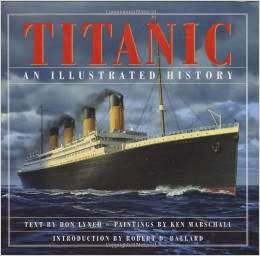Life on the Gulf is hard. Follow your nose past the shiny hotels and condos that block up the view and look at the rest of the world. The ground is flat, the air is heavy and the heat will knock you stupid two-thirds of the year. The highways are lined with billboards advertising pain doctors, tourist traps and attorneys promising high settlements and cheap divorces. The scrub grows high and thick here. The trees you see are either young matchsticks with impossibly high trunks or old, gnarled things that have survived too many hurricanes to die. The people aren't much different. For generations, they've lived by the Gulf, a few in financial comfort but most of them eaking out a living on hard work, low wages and luck that runs thin on the ground. They hold jobs without benefits, without paid vacation and without too much of a future. The life here already made these folks resourceful, tenacious, colorful and tough but right now life's even harder than usual. The BP oil spill took a look at Gulf life and punched it right in the gut.

Tom Cooper knows this and put the story of these folks in his first novel,
The Marauders. Like
Cannery Row these characters are people on the edge of disaster, living not from paycheck to paycheck but shrimp haul to shrimp haul when no one's interested in buying their catch. Like other folks on the edge, many are working just to survive but in every disaster a few still have faith in quick wealth. A one-armed man trolls the small growing islands, looking for the treasure of Jean Lafitte. A metal detector and some textbooks are his only tools but this is a man with belief. Two idiots serving sentences of community service decide to quit saving the wildlife and make a better living with theft. Stealing TVs and jewelry is just practice until they can go after a high-dollar item: the local drug lords' money crop of high-grade marijuana.
Between the dreamers and schemers are other characters to love: the boy who wants to save the family shrimping business using social media to drum up customers. The father who wants to turn back the clock to a time before the shrimping took his health and the hurricane, his wife. Most of all, there are the locals who are dirt-poor and proud enough to spit in the eye of a BP lawyer, no matter how many times he comes to call. They may give in eventually, but in then meantime they'll make his life a hell.
Cooper's smart enough to show Gulf folks are as tough as they come because they have to be. Still, something in the air-soup there feeds them and no place else will do. So they stay, through hurricanes and oil spills, working the jobs they can find and scheming for something better. A life with enough money for bills and bones that stay in place. A good education for the kids. A dress that isn't from Goodwill or Wal-Mart. But these dreams are pie-in-the-sky fancies, like drawing to an inside straight. If they can continue to live here, even on the edge of disaster, that life still looks pretty good. Cooper's real gift is that he presents these people
as people, not clowns or mannequins on a Cajun hayride. (However, the book is laugh-out loud funny in places, especially to someone who has been there. The scene on a New Orleans highway belongs on a movie screen.)
Tom Cooper's written a fine book about the folks on the edge of existence, funny and sad and wise. If your heart runs with the tide or against it, if you care for the
vrai chose,
The Marauders will give you a treat. Just remember, this isn't a story for the tourists. This one's for the real folks back home.
The Marauders was published in February of this year. Thank you to Blogging for Books for access to this fine novel










